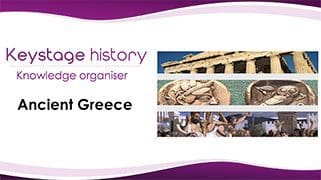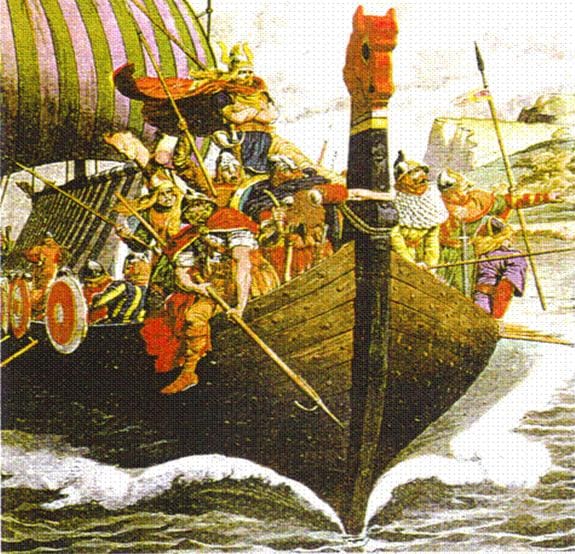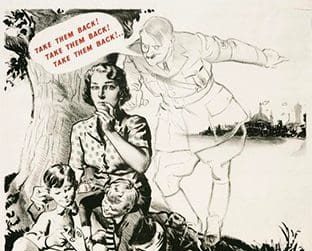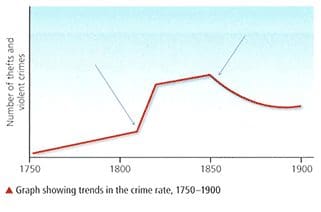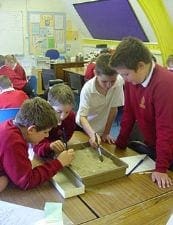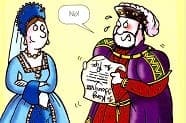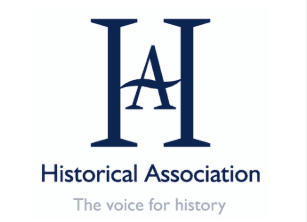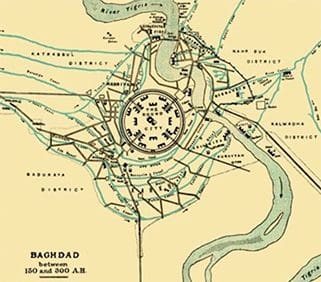
All the lessons featured below flow from the detailed medium-term planner. Each has been chosen to help pupils not only to learn about this magnificent society in its Golden Age but also to enable them to compare this society to what was happening at the same time in Britain at the time of the Vikings. Each lesson is also clearly tied to an important historical skill or concept, whether it be analysis of sources, causation or appreciating cultural diversity. The lessons start with getting pupils to engage with the society and to help them to grasp why this important topic is on the KS2 history curriculum. We then look at why the civilization grew so rapidly at the time, explaining how far it spread. Although much of the material is based on Baghdad in the 10th century there is also an important case studies of Cordoba. Naturally, we spend considerable time exploring the richness of the civilization and the legacy but we also leave time to work out how we know about this civilization when so little of Baghdad from this time is still in existence.
Image above © Look and Learn
Lessons/ Smart Tasks
- Why should we study the early Islamic civilizations in school today? Key Question 1 One of the misfortunes of a long history of stereotyping and conflict between Islam and the West is that it has fostered ignorance. Muslims and westerners know too little of how much they have in common and how much they owe to each other. This is the premise behind the first question which asks pupils to work out, as far as they can, the possible reasons why we should study early Islam and Baghdad at this stage of its history.
- How on earth was the Islamic civilization able to spread so far, so quickly, within a century of the Prophet Muhammad’s death? Key Question 2 In this demanding but important overview session pupils have to work out from clues the key reasons for Islam’s growth before going on to classify and prioritise them. The session finishes by pupils preparing for a brief radio interview in which they answer this tricky question.
- What can we learn about early Islamic civilization from the way they set up the capital at Baghdad? Key Question 3 Pupils are first asked to work collaboratively and design a picture showing what Baghdad would have looked like 1,000 years ago. All they have to work on are some notes left by visitors to Baghdad in AD 1100. In the second activity pupils have to provide a guide to merchants wishing to travel to the fabulously wealthy city of Baghdad during its heyday using a range of information provided.
- In its Golden Age, ten times more people lived in Baghdad than in London. So what was so special about it? And how can we possibly know? Key Question 4 Pupils work on text, images and objects to analyse what made early Islamic life so sophisticated compared to Britain at the time. They start by looking at the importance of trade, then mine images for meaning and end by thinking creatively about objects’ possible use by playing Call My Bluff .
- Just how amazing was daily life for rich people in Islamic cities such as Baghdad and Cordoba? Key Question 5 Pupils in role as rich Saxon visitors to 10C Islamic cities, have to capture the essence of these amazingly sophisticated cities. Towards the end of their journey they have to write a letter home expressing their surprise at what they had seen. To make this more challenging and creative, pupils must include not just sights, but also sounds and smells that would have surrounded them. Pupils analyse texts, make and classify key points and then consider which are the most significant.
- Which of the early Islamic achievements has most effect on our lives today? Key Question 6 This session consists of 2 Smart Tasks. Following a brief overview of the impact of early Islamic achievements on our world today, pupils work on two discrete tasks. Firstly they have to estimate which achievements they consider the most significant, giving a great opportunity for pupils to debate. Secondly, using the Mantle of the Expert technique pupils have to advise curators of a museum devoted to images of early Islam.
Important note: Resourcing individual lessons and smart tasks. Many of you have kindly complimented the planning we have provided for all the new KS2 topics. We’re pleased that you have found it helpful. You will notice that we have tried to show the nature of all the activities and accompanying resources necessary to meet the learning objectives. This does not mean that all the resources are immediately ready to download and use: we are developing and refining them as we trial them. For all of us, these topics are very new and only gradually are quality resources emerging. OFSTED knows this. So please be patient. We don’t want to upload mediocre material for the sake of having something there. We very much follow General Patten’s dictum “ Never tell people how to do things. Tell them what to do and they will surprise you with their ingenuity”. Our planning strongly follows this approach. But if you are stuck and would like to see examples of what we are thinking of in terms of lessons activities and resources, then we are prepared to email you draft material in an unfinished state for you to refine. After all, a good resource only becomes a great one when you modify it for your pupils.
Why I should choose Islam
With Muslims representing around a quarter of the global population – some 1.4 billion people, Islam is a powerful force in today’s world.
Islam has, in its 1400 year history, had an immense influence around the globe.
For a period Baghdad was the intellectual capital of the world. One of the classical features of this Golden Age that is the focus of study was its tolerance.
Taught well, this study could help combat some Islamophobic attitudes.
There are some great cross-curricular links, and not just with RE. Several key mathematical terms e.g. algebra have their origins in Arabic terms, and there is lots to explore in terms of knowledge of the human body.
Other resources
The BBC have created a set of short films to go with the new curriculum topics. You can find the one relating to Baghdad Circa 900 AD . It lasts about 5 minutes and is described by the BBC as follows.
A servant in Baghdad tries to solve a riddle that will allow him to become a scholar. Baghdad at the time was the largest city in the world, with a population of about 1 million. It was a perfectly round city, with all the important buildings in the centre. Situated between two rivers, it was also at the centre of the world’s great trade routes and the Caliph was therefore extremely wealthy. The clip emphasises the importance of knowledge and learning to the success of the Golden Age of Islam .

